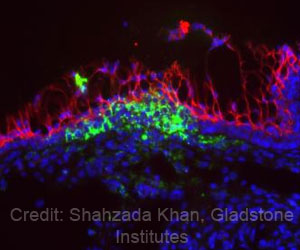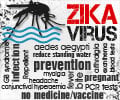- A research team from the University of Pennsylvania have developed an mRNA based Zika vaccine that was found to be effective.
- This vaccine was found to provide high level of antibodies against the Zika virus.
- A single dose provided long-term immunity, thereby cost effective.
The Zika epidemic had generated a race to develop an effective vaccine that will aid in curbing the spread of this disease. There are several candidate vaccines which are already being tested on animals but this current vaccine is the first one to show such potent and a long-lasting protection but which did not use live virus.
Features and Mechanism of the New Potential Zika Vaccine
- The earlier traditional vaccines for viral infections are usually composed of killed viruses or weakened viruses. However, the new Zika vaccine contains only small strands of the viral RNA.
- This viral RNA contains the genetic information for synthesizing viral proteins.
- The RNA strands that are used in the vaccine are modified versions of messenger RNAs (mRNAs), which are involved in the transfer of information from genes and act as blueprints for the synthesis of proteins.
- These mRNAs are manufactured in the laboratory and then incorporated into the vaccine and administered into the patient as an injection.
- Under normal circumstances mRNA that is injected into an individual are removed from the body via the host’s immune system. However, these modified mRNAs bypass the immune system and enter cells.
- Once these mRNAs are taken up by individual cells, they begin to synthesize the viral proteins that they code for.
Certain latest versions of vaccines include viruses, which are modified adenoviruses, and considered harmless to deliver genes that aid in the synthesis of viral proteins. This type of vaccine, which includes an adenovirus, has been the only type of vaccine that has been found to offer maximum protection in monkeys after a single dose. The main disadvantage associated with such adenovirus based vaccine is that the immune system could attack these adenoviruses and prevent the delivery of the necessary genes into the cell.
mRNA based Vaccine
The new potential mRNA vaccine does not have any of the drawbacks of the earlier versions of the Zika vaccine and it contains the mRNA for two important proteins of a Zika strain which was isolated during the outbreak in 2013.- There was no detectable virus in the blood of the mice a few days after exposure to the virus
- The mice remained protected even when the virus was re-introduced 5 months later
The animal trials that were conducted showed that
- High levels of antibodies were induced by the vaccine which aided in preventing a Zika virus infection
- The antibody levels peaked after a few weeks and they stayed high even after several weeks
- There was 25 times greater viral neutralization than standard vaccines, according to Dr. Weissman
- There is a strong stimulation of CD4 helper T cells, found to be important for long-term immunity
Cost Effective
This vaccine is based on mRNA and was found to offer good protection after a single dose, which makes it cheaper to carry out large scale administration. The production costs of this vaccine is also lower than vaccines that are based on live or viral protein based vaccines. The success of this mRNA vaccine has encouraged the scientists to develop similar vaccines for other diseases.Zika Virus
The main mode of transmission of Zika virus is via the Aedes mosquitoes. The symptoms associated with the infection are characterized by skin rash, muscle pain, joint pain, mild fever and conjunctivitis. However, Zika virus epidemic rose to significance when it was associated with the development of microcephaly in newborns.There have been many travel advisories that have been issued, warning people against traveling to Zika prone areas and pregnant women have been the most affected, as the virus affects the fetuses. An effective Zika vaccine will aid in protecting against the infection and will safeguard the health of people traveling to or living in Zika prone areas.
References:
- Zika virus - (http://www.who.int/mediacentre/factsheets/zika/en/)












